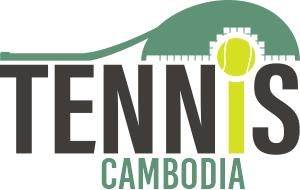Introduction to Tennis Nutrition
Tennis is a physically demanding sport that requires a combination of speed, agility, power, and endurance. To perform at their best, tennis players need to fuel their bodies with the right nutrients. Proper nutrition is essential for maintaining energy levels, preventing fatigue, and promoting recovery. A well-balanced diet can make a significant difference in a player’s performance on the court.
Why Nutrition is Crucial for Tennis Players
Nutrition plays a vital role in a tennis player’s ability to perform at a high level. The intense nature of the sport places significant demands on the body, and without proper fuel, players can quickly become fatigued, leading to a decrease in performance. Good nutrition helps players maintain their energy levels throughout long matches and grueling training sessions. It also supports muscle repair and recovery, allowing players to bounce back faster between matches and training.
Components of a Balanced Diet for Tennis Players
A balanced diet for tennis players should include the right proportions of carbohydrates, proteins, and fats. These macronutrients provide the energy and building blocks necessary for optimal performance and recovery.
Role of Carbohydrates in Tennis Nutrition
Carbohydrates are the primary energy source for tennis players. They provide the fuel needed for high-intensity movements and quick bursts of power. Complex carbohydrates, such as whole grains, fruits, and vegetables, are preferred over simple sugars as they provide sustained energy release. Players should aim to get 60% of their daily caloric intake from carbohydrates.
| Good Sources of Complex Carbohydrates |
|---|
| Brown rice |
| Whole wheat bread |
| Oatmeal |
| Sweet potatoes |
| Quinoa |
Importance of Proteins for Muscle Repair
Proteins are essential for muscle repair and recovery. During intense training and matches, muscle fibers undergo small tears and need protein to rebuild and grow stronger. Adequate protein intake helps prevent muscle breakdown and promotes muscle synthesis. Tennis players should aim for 10-15% of their daily caloric intake from lean protein sources.
- Lean meats (chicken, turkey)
- Fish
- Eggs
- Dairy products (Greek yogurt, cottage cheese)
- Legumes (beans, lentils)
Fats as a Source of Sustained Energy
While often overlooked, fats play a crucial role in tennis nutrition. Healthy fats provide a source of sustained energy, especially during long matches. They also support hormone production and aid in the absorption of fat-soluble vitamins. Players should aim to get 20-30% of their daily caloric intake from healthy fat sources such as avocados, nuts, seeds, and olive oil.
Hydration and Electrolytes
Proper hydration is crucial for tennis players, as even mild dehydration can significantly impact performance. Sweating during intense play leads to fluid and electrolyte losses, which need to be replaced to maintain optimal function.
Hydration Strategies for Tennis Players
Tennis players should develop a hydration plan to ensure they are adequately replacing fluids lost through sweat. The general recommendation is to drink 8-10 cups of water per day, with additional fluid intake before, during, and after play. Players can monitor their hydration status by checking the color of their urine, aiming for a light straw color.
Essential Electrolytes and Their Functions
Electrolytes, such as sodium, potassium, calcium, and iron, are essential minerals that play crucial roles in muscle function, fluid balance, and energy production. Sodium and potassium, in particular, are lost in significant amounts through sweat. Players should incorporate electrolyte-rich foods and beverages into their diet, especially during tournaments or in hot conditions.
| Electrolyte | Function | Food Sources |
|---|---|---|
| Sodium | Fluid balance, muscle contractions | Table salt, sports drinks |
| Potassium | Muscle and nerve function | Bananas, potatoes, leafy greens |
| Calcium | Bone health, muscle contractions | Dairy products, leafy greens |
| Iron | Oxygen transport, energy production | Red meat, poultry, legumes |
Pre-Training and Post-Training Nutrition
What players eat before and after training sessions and matches can significantly impact their performance and recovery. Proper fueling and refueling strategies ensure that the body has the energy and nutrients needed to perform at its best.
Optimal Pre-Training Meals
The goal of pre-training nutrition is to provide sustained energy without causing gastrointestinal discomfort. Players should aim to eat a meal containing complex carbohydrates and quality protein 2-3 hours before training or competition. This allows time for digestion while still providing a stable energy source. Good options include oatmeal with fruit and nuts, a turkey and avocado sandwich on whole grain bread, or grilled chicken with sweet potato and vegetables.
Effective Post-Training Meals
Post-training nutrition is crucial for recovery and muscle repair. The body is primed to absorb nutrients immediately after exercise, making it the perfect time to replenish energy stores and provide building blocks for muscle growth. An ideal post-training meal should include a combination of carbohydrates, protein, and healthy fats. Players should aim to eat within 30 minutes to an hour after training. Good options include a spinach omelet with whole grain toast, grilled salmon with quinoa and roasted vegetables, or a protein smoothie made with Greek yogurt, berries, and chia seeds.
Superfoods and Supplements for Tennis Players
While a well-balanced diet should provide most of the necessary nutrients, certain superfoods and supplements can give tennis players an extra edge. These nutrient-dense options can help enhance performance, speed up recovery, and support overall health.
Top Superfoods for Tennis Performance
Superfoods are nutrient-packed foods that offer a range of health benefits. Some top superfoods for tennis players include:
- Beetroot: Rich in nitrates, which can improve endurance and reduce fatigue.
- Coconut water: A natural source of electrolytes, helping to replenish those lost through sweat.
- Organic berries: High in antioxidants, which help combat oxidative stress and inflammation.
- Tart cherries: Contain anti-inflammatory compounds that can aid in muscle recovery.
- Chia seeds: Packed with fiber, protein, and healthy fats for sustained energy release.
Recommended Supplements for Tennis Players
While supplements should never replace a well-balanced diet, they can help fill nutritional gaps and provide convenient options for players on the go. Some beneficial supplements for tennis players include:
- Protein powder: Can help meet increased protein needs for muscle recovery and growth.
- Creatine: May enhance power output and delay fatigue during high-intensity play.
- Omega-3 fatty acids: Support overall health and may help reduce inflammation.
- Vitamin D: Important for bone health and immune function, especially for players with limited sun exposure.
- Electrolyte tablets: Convenient way to replace electrolytes lost through sweat during long matches.
It’s important to note that supplements should be used under the guidance of a healthcare professional or sports nutritionist to ensure safety and effectiveness.
Meal Preparation and Planning
Proper nutrition requires planning and preparation to ensure that players have access to healthy, nutrient-dense options throughout the day. Meal prepping can save time, reduce stress, and help players stay on track with their nutritional goals.
Tips for Effective Meal Preparation
- Set aside time each week to plan meals and create a grocery list.
- Choose recipes that incorporate a variety of nutrient-dense foods.
- Batch cook staples like grains, proteins, and roasted vegetables for easy assembly.
- Portion out meals into individual containers for grab-and-go convenience.
- Keep healthy snacks on hand for pre and post-training fuel.
By preparing meals in advance, players can avoid relying on processed or fast foods that may be lacking in essential nutrients. It also allows for greater control over portion sizes and macronutrient balance.
Personalized Dietary Plans and Consulting
While general nutrition guidelines can benefit most tennis players, individualized plans can take performance to the next level. Working with a sports nutritionist or registered dietitian can help players develop personalized strategies based on their unique needs, goals, and preferences.
Benefits of Personalized Nutrition Plans
Personalized nutrition plans take into account factors such as a player’s age, sex, body composition, training schedule, and any medical conditions or food intolerances. By tailoring dietary recommendations to the individual, players can optimize their performance, recovery, and overall health. Personalized plans can also help players navigate specific challenges, such as maintaining weight during travel or fueling for multiple matches in a day.
Consulting with Nutrition Experts
Consulting with a sports nutritionist or registered dietitian can provide valuable insights and support for tennis players looking to enhance their performance through nutrition. These professionals can:
- Assess a player’s current diet and identify areas for improvement.
- Develop personalized meal plans and fueling strategies.
- Provide guidance on hydration, supplement use, and recovery nutrition.
- Monitor progress and make adjustments as needed.
- Educate players on the science behind sports nutrition.
Working with a nutrition expert can give players the knowledge and tools they need to make informed choices about their fueling strategies, both on and off the court.
Education and Continuous Learning
Staying informed about the latest research and best practices in sports nutrition is an ongoing process. As new findings emerge, players and coaches should be open to adjusting their strategies to optimize performance and health.
Importance of Nutrition Education
Nutrition education empowers tennis players to make informed choices about their fueling strategies. By understanding the role of different nutrients, players can better navigate the challenges of maintaining a balanced diet while meeting the demands of training and competition. Coaches and parents play a key role in promoting nutrition education and modeling healthy habits.
Resources for Learning About Tennis Nutrition
There are many reputable resources available for players, coaches, and parents looking to learn more about tennis nutrition:
- Sports nutrition books and journals
- Online courses and webinars
- Workshops and conferences
- Nutrition-focused podcasts
- Accredited sports nutrition websites
By staying informed and embracing a mindset of continuous learning, tennis players can adapt their nutrition strategies as new information becomes available, ensuring they are always fueling their bodies for optimal performance and health.






